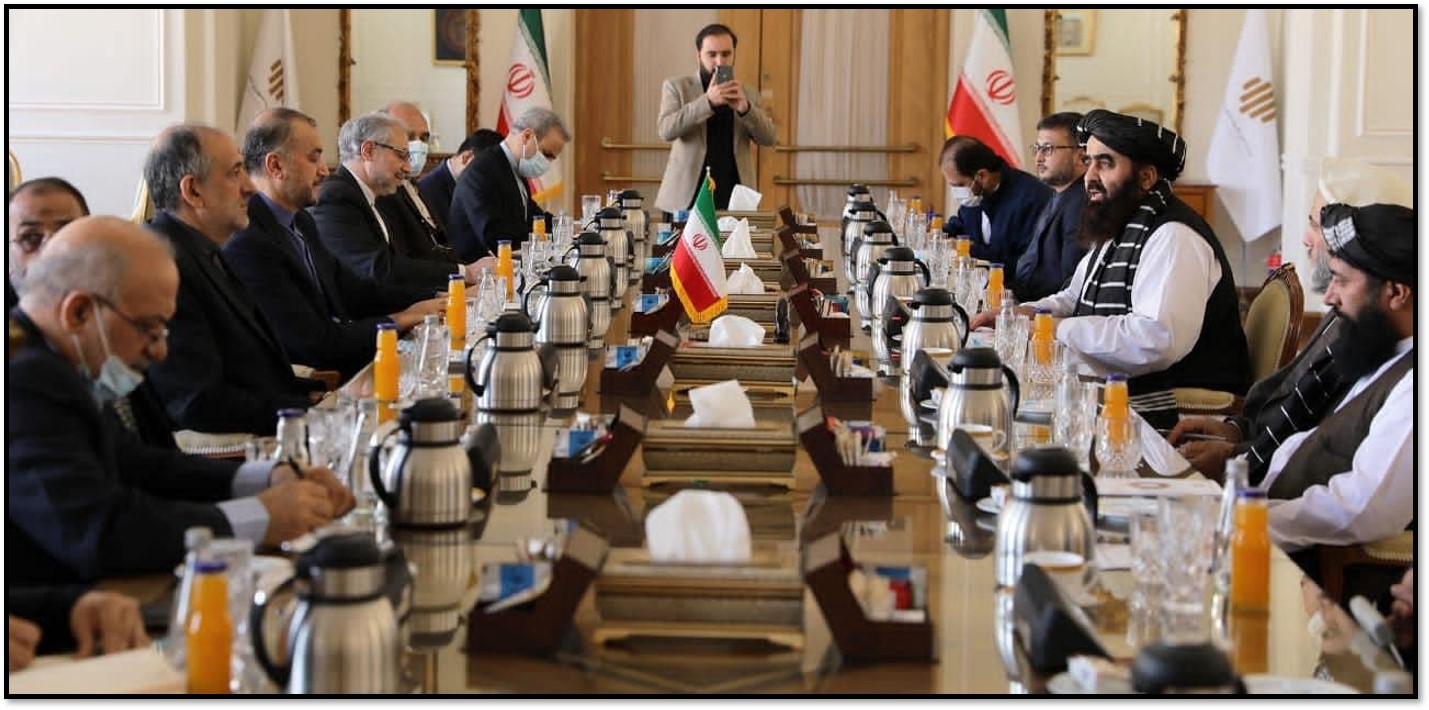January 9-10
Regional: On January 9, Iranian Foreign Minister Hossein Amir-Abdollahian hosted Amir Khan Muttaqi, the Taliban’s acting foreign minister, in Tehran. Amir-Abdollahian reiterated Iran’s call for an inclusive government that reflects Afghanistan’s diverse religious and ethnic groups. The diplomats also discussed issues of common concern, including refugees, border security, water resources and the threat posed by Islamic State – Khorasan. “The assets of Afghanistan blocked by America...should be used for humanitarian purposes and improvement of the living conditions in Afghanistan,” Amir-Abdollahian said after the meeting. On January 10, Iran’s foreign ministry clarified that the visit did not signify a recognition of the Taliban government.

While in Iran, Muttaqi said that he met with representatives of the armed Afghan opposition in exile, including Ahmad Massoud, the leader of resistance forces that were based in the Panjshir Valley, and Ismail Khan, a militia leader from Herat province. “We met commander Ismail Khan and Ahmad Massoud, and other Afghans in Iran, and assured them that anyone can come to Afghanistan and live without any concerns,” Muttaqi said. Iran has played a mediating role between Afghan factions in the past.
Israel: Prime Minister Naftali Bennett said that Israel “is not bound by what will be written” in a potential agreement to return the United States and Iran to full compliance with the 2015 nuclear deal. Israel “will continue to maintain full freedom of action anywhere any time, with no constraints,” he said in a public briefing to lawmakers,
Human Rights: U.S. Special Envoy for Iran Robert Malley called on Iran to release American-British dual citizen Morad Tahbaz from his confinement in Evin Prison. “Morad is a father, an environmentalist, and a cancer victim.” Tahbaz was arrested in January 2018. Malley’s tweet came two days after dissident poet Baktash Abtin – who contracted COVID-19 in Evin Prison – died while on furlough at a hospital.
Regional: Foreign Minister Amir-Abdollahian traveled to Muscat, Oman, where he discussed ways to boost bilateral relations with his counterpart Badr bin Hamad al Saeedi. Amir-Abdollahian also met Mohammed Abdulasalam, the chief negotiator of Yemen’s National Salvation Government, which is supported by the Houthis, a rebel group backed by Iran. The two diplomats discussed efforts to end the war in Yemen.
January 11
Regional: In Doha, Foreign Minister Amir-Abdollahian and Sheikh Tamim bin Hamad Al Thani expressed their willingness boost regional cooperation. They discussed issues of common interest, including the talks to restore the 2015 nuclear deal, the war in Yemen and the situation in Afghanistan.
January 12

Business: The U.S. Treasury issued a license authorizing South Korea’s government to compensate an Iranian investor for the breakdown in acquiring Daewoo Electronics in 2010. In 2018, the International Center for Settlement of Investment Disputes ordered South Korea to pay the Dayyani family some $63 million. But U.S. sanctions prevented the transfer.
Human Rights: France demanded the release of French-Iranian academic Fariba Adelkhah. She had been detained in 2019, sentenced to five years in prison in 2020 and then put under house arrest. “The decision to re-incarcerate her, which we condemn, can only have negative consequences on the relationship between France and Iran and reduce the trust between our two countries,” France’s foreign ministry warned. Iranian authorities have declined to provide details about her case, and France has claimed that she was arrested arbitrarily.
